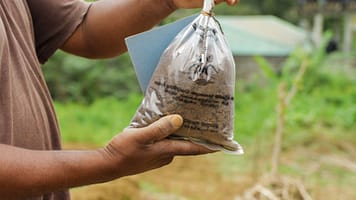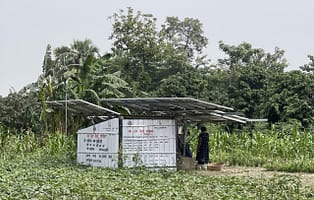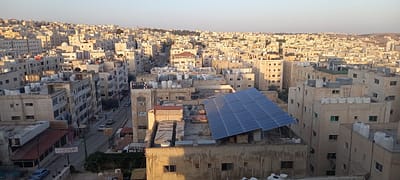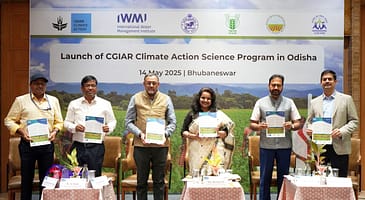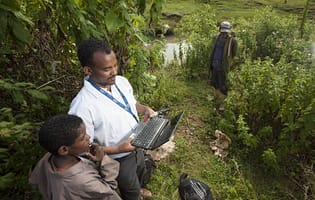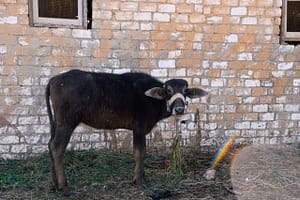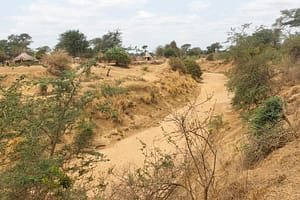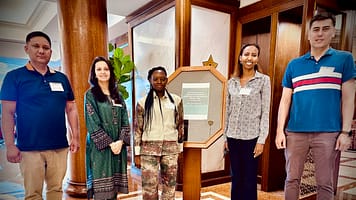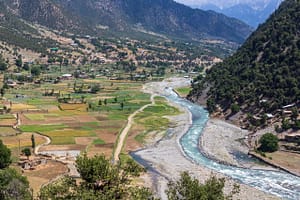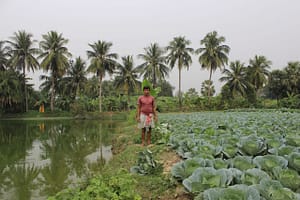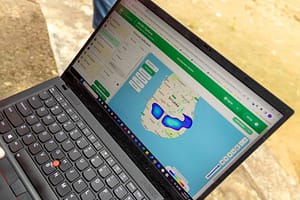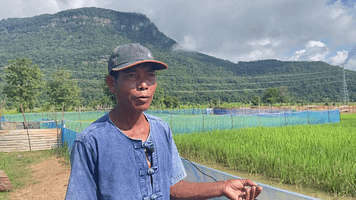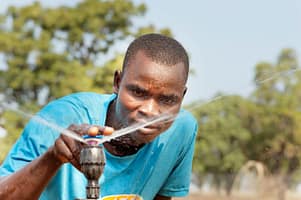All Categories News (459) Explainers (5) Features (168) In the media (235) Press releases (81) Publications (48) Specials (0) Annual reports (6) Blogs (305) From the DG (6) Multimedia (0) Infographics (3) Photos (6) Podcasts (10) Videos (48)
All Locations Africa (454) Algeria (1) Angola (1) Benin (3) Botswana (6) Burkina Faso (9) Burundi (1) Chad (1) Côte d’Ivoire (4) Democratic Republic of the Congo (1) Egypt (38) Ethiopia (83) Gambia (1) Ghana (84) Kenya (28) Lesotho (1) Libya (3) Malawi (9) Mali (6) Morocco (18) Mozambique (8) Namibia (3) Niger (1) Nigeria (23) Rwanda (5) Senegal (4) Sierra Leone (1) South Africa (34) Sudan (3) Togo (2) Tunisia (10) Uganda (8) United Republic of Tanzania (5) Zambia (34) Zimbabwe (18) Americas (20) Brazil (2) Colombia (5) Ecuador (1) Mexico (3) Nicaragua (1) Paraguay (1) Peru (2) United States of America (3) Asia (617) Afghanistan (8) Azerbaijan (2) Bangladesh (36) Bhutan (3) Cambodia (6) China (17) India (136) Indonesia (1) Iran (2) Iraq (4) Japan (2) Jordan (33) Kazakhstan (2) Kyrgyzstan (4) Lao PDR (18) Lebanon (12) Malaysia (1) Myanmar (14) Nepal (99) Pakistan (93) Philippines (1) Saudi Arabia (8) Sri Lanka (151) Syrian Arab Republic (3) Tajikistan (10) Thailand (1) Turkmenistan (2) United Arab Emirates (16) Uzbekistan (18) Viet Nam (4) Yemen (5) Europe (5) Italy (1) Netherlands (1) Spain (2) Sweden (1) Ukraine (1) Global (133) Oceania (4) Australia (3) Fiji (1)
All Research Non-research (8) Water data science (171) Water data science for action (74) Water futures data and analytics (38) Water, climate change and resilience (423) Climate mitigation and adaptation pathways (259) Climate policies, finance and processes (42) Fragility, conflict, livelihoods and water (19) Water, food and ecosystems (376) Agricultural water management transformations (43) Integrated basin and aquifer management (27) Next generation irrigation systems (125) Sustainable water infrastructure and ecosystems (93) Water, food, energy nexus (84) Water, growth and inclusion (350) Economics and impact assessment (31) Gender equality and social inclusion (167) Integrated circular economy transformations (55) Water governance and political economy (44)
All Funders & Partners Africa Group of Negotiators Expert Support (1) African Development Bank (AfDB) (2) African Minister’s Council on Water (AMCOW) (1) African Union (1) African Union Commission (1) Agriculture And Climate Risk Enterprise (ACRE Africa) (1) Alliance for a Green Revolution in Africa (AGRA) (1) Alliance for Global Water Adaptation (AGWA) (6) Aquaporo (2) Arab Water Council (1) Arup (3) Asian Development Bank (ADB) (4) Association of International Research and Development Centers for Agriculture (AIRCA) (6) Centre for Agriculture and Bioscience International (CABI) (1) International Centre for Integrated Mountain Development (ICIMOD) (5) Australia’s Department of Foreign Affairs and Trade (DFAT) (9) Water for Women Fund (3) Australian Centre for International Agricultural Research (ACIAR) (8) Australian Water Partnership (AWP) (4) Bagmati Welfare Society (1) BAIF Development Research Foundation (1) Bangladesh’s Ministry of Agriculture (1) Bangladesh Agricultural Research Council (BARC) (1) Bill & Melinda Gates Foundation (9) CARE (1) Center for Environment and Development for the Arab Region and Europe (CEDARE) (1) Centre for Poverty Analysis (CEPA) (1) Cewas (1) CGIAR (352) Alliance of Bioversity International and CIAT (10) Center for International Forestry Research and World Agroforestry (CIFOR-ICRAF) (2) International Center for Agricultural Research in the Dry Areas (ICARDA) (4) International Crops Research Institute for the Semi-Arid Tropics (ICRISAT) (1) International Food Policy Research Institute (IFPRI) (16) International Livestock Research Institute (ILRI) (2) International Maize and Wheat Improvement Center (CIMMYT) (9) International Potato Center (CIP) (1) International Rice Research Institute (IRRI) (14) WorldFish (8) Chrysalis (1) Climate Centre (2) Columbia University (1) Cornell University (1) Council on Energy, Environment and Water (CEEW) (1) Deltares (3) Deutsche Gesellschaft fuer Internationale Zusammenarbeit (GIZ) GmbH (7) Digital Earth Africa (5) Economic Community of West African States (ECOWAS) (1) European Union (EU) (18) European Commission (10) Everest Club (2) Expertise France (1) Farm Africa (1) Field Ornithology Group of Sri Lanka (FoGSL) (1) Germany’s Federal Ministry for Economic Cooperation and Development (BMZ) (8) Ghana’s Ministry of Environment, Science, Technology and Innovation (1) Ghana’s Council for Scientific and Industrial Research (CSIR) (1) Ghana’s Ministry of Food and Agriculture (MoFA) (2) Ghana Irrigation Development Authority (GIDA) (1) Global Affairs Canada (1) Global Commission on the Economics of Water (1) Global Environment Facility (GEF) (4) Global Institute for Interdisciplinary Studies (1) Global Resilience Partnership (GRP) (1) Global Water Partnership (GWP) (18) Google.org (8) GroundTruth (1) Hawassa University (5) Helmsley Charitable Trust (13) iDE (1) IHE Delft Institute for Water Education (6) India’s Ministry of Agriculture and Farmers Welfare (8) Indian Council of Agricultural Research (ICAR) (7) Borlaug Institute for South Asia (BISA) (1) Central Arid Zone Research Institute (CAZRI) (1) Central Research Institute for Dryland Agriculture (CRIDA) (1) India’s Ministry of Jal Shakti (1) Indian Space Research Organisation (ISRO) (1) Institute of Development Studies (IDS) (1) Inter-American Development Bank (IDB) (1) International Dryland Development Commission (IDDC) (1) International Federation of Red Cross and Red Crescent Societies (IFRC) (2) International Fund for Agricultural Development (IFAD) (8) International Institute for Applied Systems Analysis (IIASA) (1) International Union for Conservation of Nature (IUCN) (5) International Water Association (IWA) (3) International Water Resources Association (IWRA) (1) Interstate Commission for Water Coordination of Central Asia (ICWC) (1) Scientific-Information Center (SIC) (1) Japan’s Ministry of Agriculture, Forestry and Fisheries (MAFF) (7) Jordan’s Ministry of Agriculture (1) Kenya Agricultural & Livestock Research Organization (KALRO) (1) Kwame Nkrumah University of Science and Technology (1) League of Arab States (1) Arab Organization for Agricultural Development (AOAD) (1) Limpopo Watercourse Commission (LIMCOM) (2) McGill University (1) Mercy Corps (2) Ministry of Economic Affairs and Climate Policy of the Netherlands (1) Netherlands Enterprise Agency (RVO) (1) National Agriculture Research Center (1) National Association for Rural Municipalities in Nepal (1) NDC Partnership (1) Nepal Water Conservation Foundation (NWCF) (1) Nepal’s Ministry of Energy, Water Resources and Irrigation (2) Nepal’s Department of Hydrology and Meteorology (DHM) (1) Netherlands Food Partnership (NFP) (1) Netherlands Water Partnership (NWP) (1) Norwegian Agency for Development Cooperation (NORAD) (4) Organisation for Economic Co-operation and Development (OECD) (1) Pakistan Council of Research in Water Resources (PCRWR) (2) Pakistan Ministry of Climate Change and Environmental Coordination (MOCC) (1) Regional Environmental Centre for Central Asia (CAREC) (1) Resurgence (2) Schlumberger Faculty for the Future Stitching Fund (1) Sierra Leone’s Ministry of Water Resources (1) National Water Resources Management Agency (NWRMA) (1) SNV Netherlands Development Organisation (4) South Asian Association for Regional Cooperation (SAARC) (1) South China Agricultural University (SCAU) (1) Sri Lanka’s Ministry of Agriculture (6) Sri Lanka’s Department of Agrarian Development (3) Sri Lanka’s Ministry of Defence (6) Sri Lanka’s Disaster Management Division (5) Sri Lanka’s Disaster Management Centre (5) Sri Lanka’s Ministry of Environment (3) Sri Lanka’s Ministry of Finance, Planning and Economic Development (1) Sri Lanka’s Department of National Planning (1) Sri Lanka’s Ministry of Irrigation (2) Sri Lanka’s Ministry of Mahaweli Development and Environment (1) Sri Lanka’s Ministry of Technology (4) Arthur C. Clarke Institute for Modern Technologies (ACCIMT) (1) National Research Council of Sri Lanka (NRC) (2) Stockholm Environment Institute (SEI) (3) Stockholm International Water Institute (SIWI) (3) SunCulture (1) Swedish International Development Agency (SIDA) (3) Swedish University of Agricultural Sciences (SLU) (1) Swiss Agency for Development and Cooperation (SDC) (12) Tata Trusts (23) Total LandCare (1) Tribhuvan University (1) UK Research and Innovation (UKRI) (2) UK’s Department for Science, Innovation and Technology (1) UK Met Office (2) UK’s Foreign, Commonwealth & Development Office (FCDO) (44) United Nations (UN) (75) Food and Agriculture Organization of the United Nations (FAO) (23) Intergovernmental Panel on Climate Change (IPCC) (1) Intergovernmental Science-Policy Platform on Biodiversity and Ecosystem Services (IPBES) (1) International Organization for Migration (IOM) (2) International Telecommunication Union (ITU) (1) Risk-informed Early Action Partnership (REAP) (1) UN Environment Programme (UNEP) (6) UN-Water (3) United Nations Children’s Fund (UNICEF) (7) United Nations Convention to Combat Desertification (UNCCD) (1) International Drought Resilience Alliance (IDRA) (2) United Nations Development Programme (UNDP) (3) United Nations Economic and Social Commission for Asia and the Pacific (1) United Nations Economic and Social Commission for Western Asia (ESCWA) (1) United Nations Educational, Scientific and Cultural Organization (UNESCO) (1) United Nations Framework Convention on Climate Change (UNFCCC) (6) United Nations Office for Disaster Risk Reduction (UNDRR) (1) Coalition for Disaster Resilient Infrastructure (1) United Nations Office for Outer Space Affairs (UNOOSA) (1) United Nations Office for the Coordination of Humanitarian Affairs (UN OCHA) (2) United Nations Population Fund (UNFPA) (1) World Food Programme (WFP) (10) World Meteorological Organization (WMO) (1) COPE Disaster Champions (1) United States Agency for International Development (USAID) (64) Feed the Future (2) United States Department of State (1) University of Aberdeen (5) University of London (1) School of Oriental and African Studies (SOAS) (1) University of Manchester (1) University of Nebraska (11) Daugherty Water for Food Global Institute (12) Water Research Commission (WRC) of South Africa (1) Wellcome Trust (2) World Bank (83) International Development Association (IDA) (1) World Economic Forum (2) World Farmers’ Organization (WFO) (1) World Vision (6) Department of Water Resources (DWR) (2) National Oceanic and Atmospheric Administration (NOAA) (1) Southern African Dvelopment Community – Groundwater Management Institute (SADC-GMI) (1)
Sort by date Newest first Oldest first
June 30, 2025
This video shows farmers how to take soil samples for testing. It was produced by the International Water Management Institute (IWMI) in partnership with Sri Lanka’s Department of Agriculture and
June 30, 2025
Doulaye Kone, Cristina Rumbaitis del Rio and Debra Tan will join the Board as IWMI takes forward its Strategy 2024-2030 for research and innovation.
June 26, 2025
IWMI researchers created a groundwater game that uses Generative AI to allow players to understand the complexities of decision-making for groundwater management.
June 26, 2025
The collaboration will strengthen cooperation under the Action on Water Adaptation and Resilience (AWARe) Initiative.
June 24, 2025
CGIAR Science Programs on Policy Innovations and on Climate Action were launched in Pakistan, introducing three digital platforms to aid smarter decision-making for efficient water use and climate resilience.
June 23, 2025
Small solar pumps help individual farmers, but larger systems that serve collective fields could drive uptake and lift rural incomes across Nepal’s breadbasket, as lessons from its neighbor Indian state
June 20, 2025
IWMI and partners are supporting the Government of Jordan to localize early warning systems, collaborative planning, impact-based forecasting and inclusive disaster risk management — all to ensure that refugees and
June 19, 2025
The recent launch of the CGIAR Climate Action Program in the Indian states of Odisha and Tamil Nadu marks a major step toward integrating science-based climate solutions into state-level planning
June 19, 2025
IWMI launched three new digital platforms to help Pakistan better manage its water, food and energy resources amid serious climate challenges.
June 18, 2025
This blog sheds light on how this impact assessment methodology generates key insights, enhances understanding and shapes change.
June 17, 2025
Smarter water use and inclusive planning are critical as the country finds new ways to manage water and protect vulnerable communities.
June 17, 2025
Climate-smart, inclusive irrigation solutions empower Kenya’s farmers.
June 16, 2025
On Working Animal Day, IWMI pays tribute to the vital role of the water buffalo in rural economies, from the Nile to the Euphrates.
June 13, 2025
Stakeholders in the Rangun watershed in Nepal’s Mahakali-Karnali River Basin illustrate how a holistic approach across the Water-Energy-Food-Ecosystem Nexus can offer scalability for broader cross-border challenges.
June 12, 2025
This groundbreaking approach to insurance can help farmers receive payments faster after disasters and become more climate resilient.
June 10, 2025
Five IWMI researchers reflect on their learnings from the Crawford Fund Master Class on Agricultural Research Leadership and Management in Malaysia – and how they can use their newly acquired
June 9, 2025
The invisible water behind global trade is an important consideration in global resource management.
June 6, 2025
Differentiating types of water is essential to understanding water systems and reuse.
June 5, 2025
The Barahathawa Municipality in southern Nepal has been creating a model for effective groundwater management to ensure prosperity, social equity and environmental sustainability. This example highlights how local leadership and
June 4, 2025
Agriculture is the biggest user and polluter of water, but it is largely missing from agroecology.
June 3, 2025
IWMI launched a geo-tagging project to manage water stress in the face of climate and infrastructure challenges.
June 3, 2025
IWMI launches the early warning, early action, early finance platform to pre-empt disaster in Sri Lanka.
May 30, 2025
In Lao PDR's Sanamxay district, the International Water Management Institute (IWMI), through the CGIAR Initiative on Agroecology, is helping farmers adopt integrated rice-fish farming to enhance food security and nutrition
May 27, 2025
Water plays a critical role in the African Union’s vision of a global economic power. On this Africa Day, IWMI reflects on its contribution to the continent’s sustainable development, food


